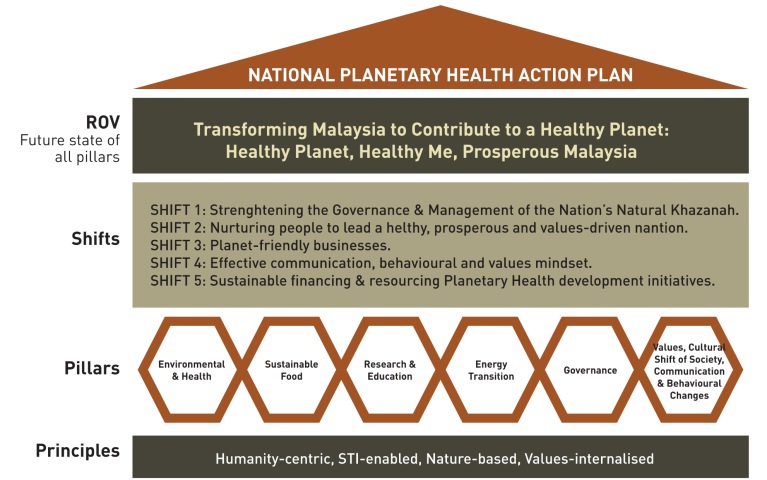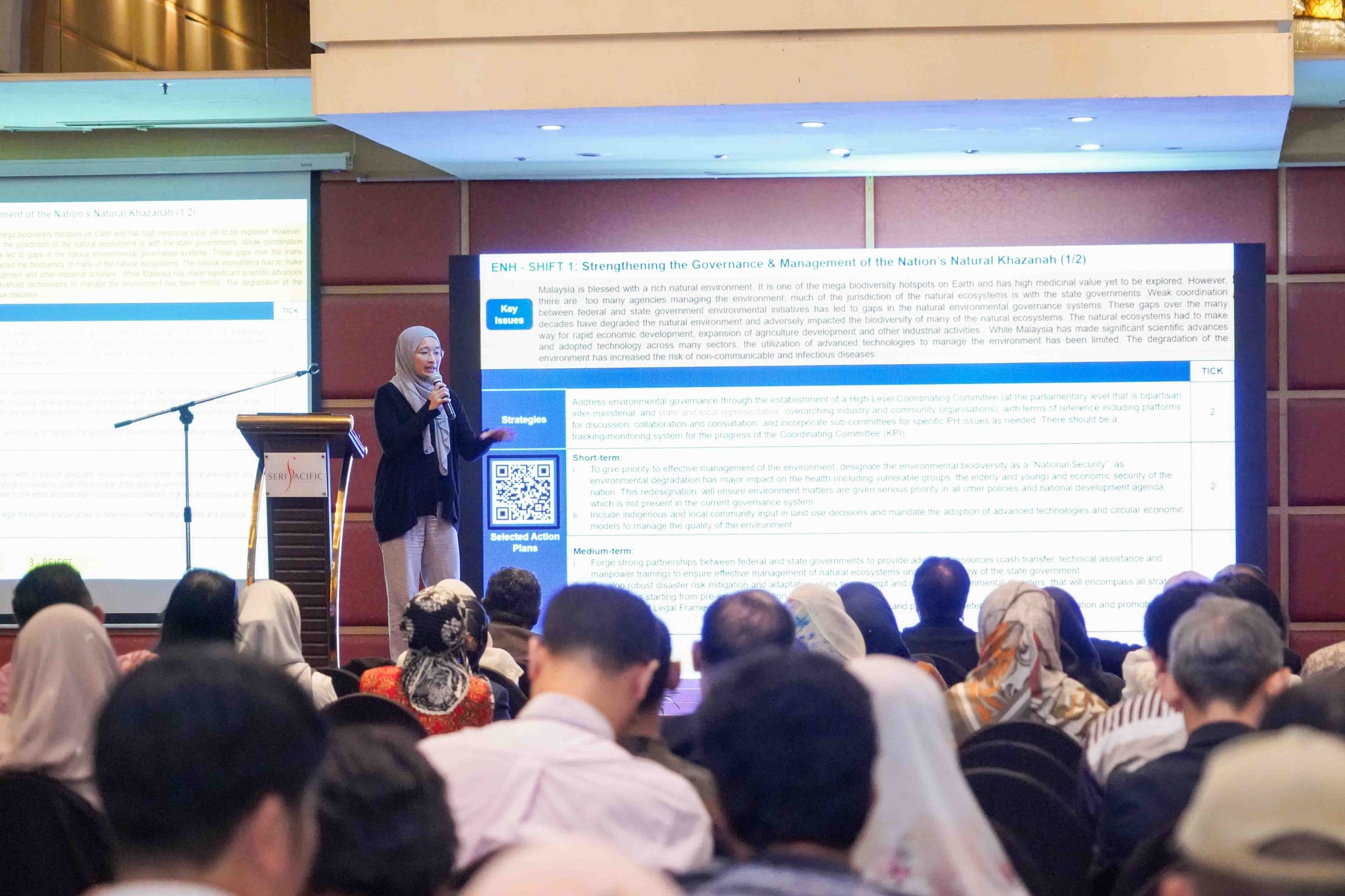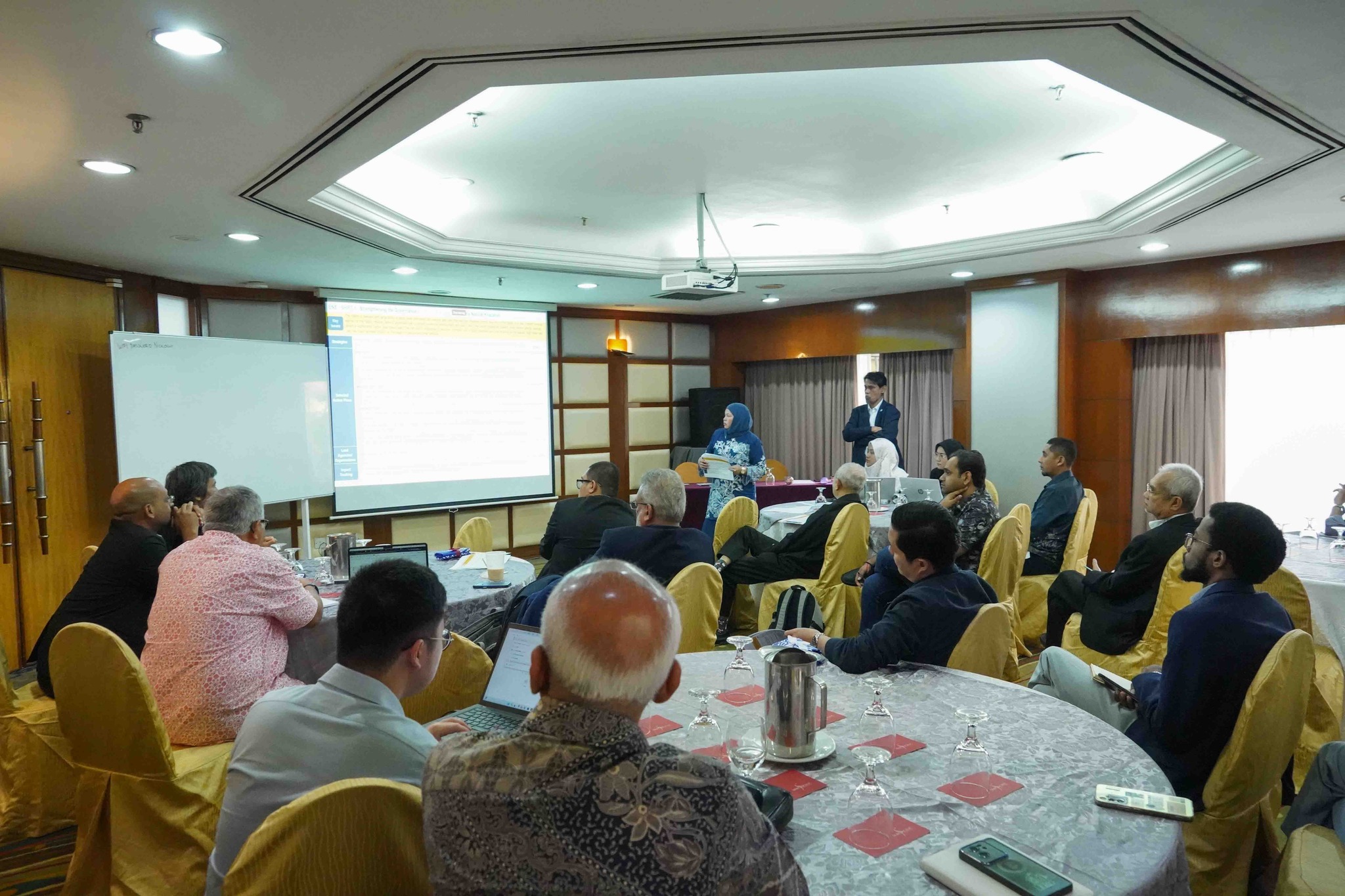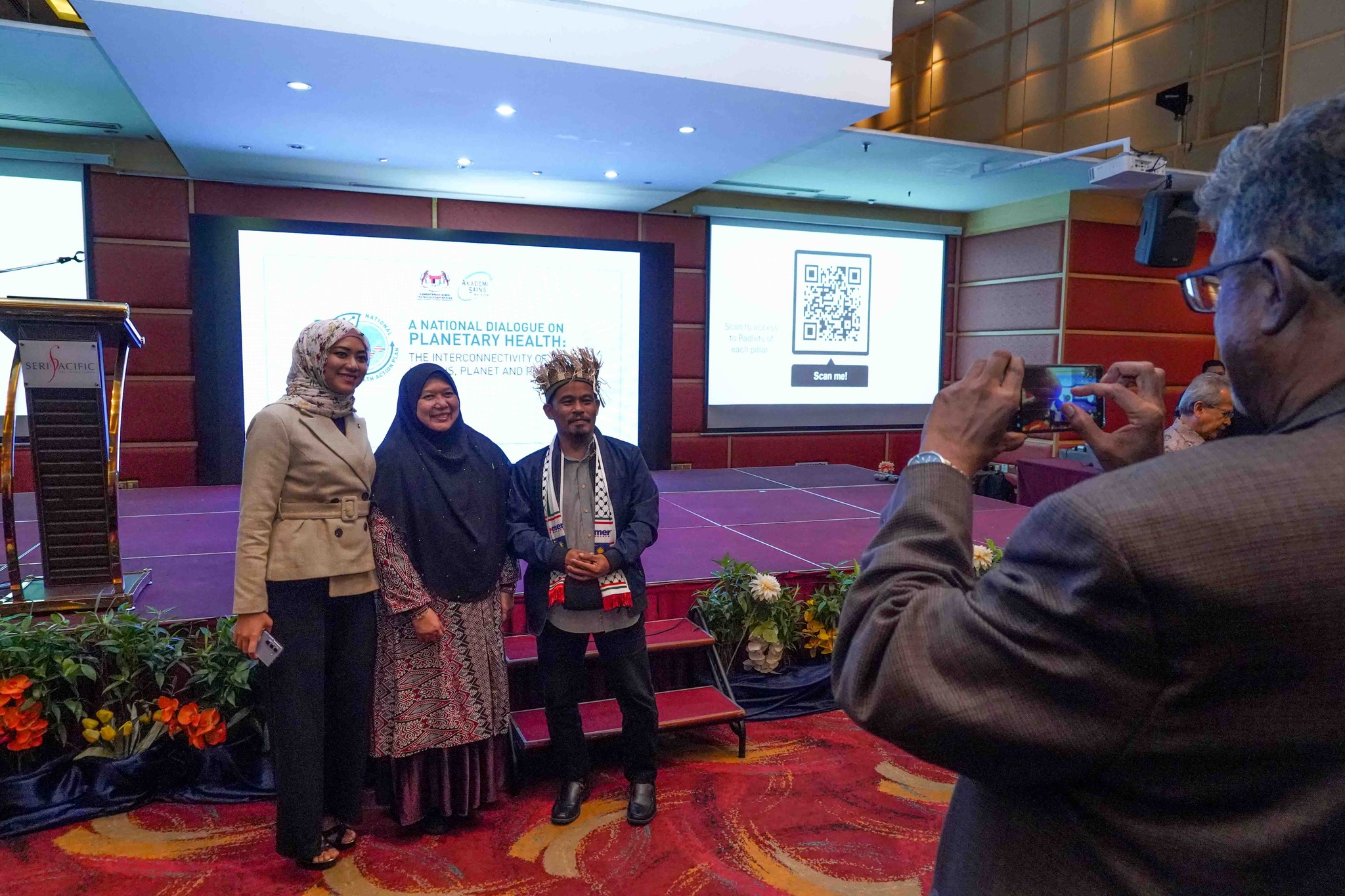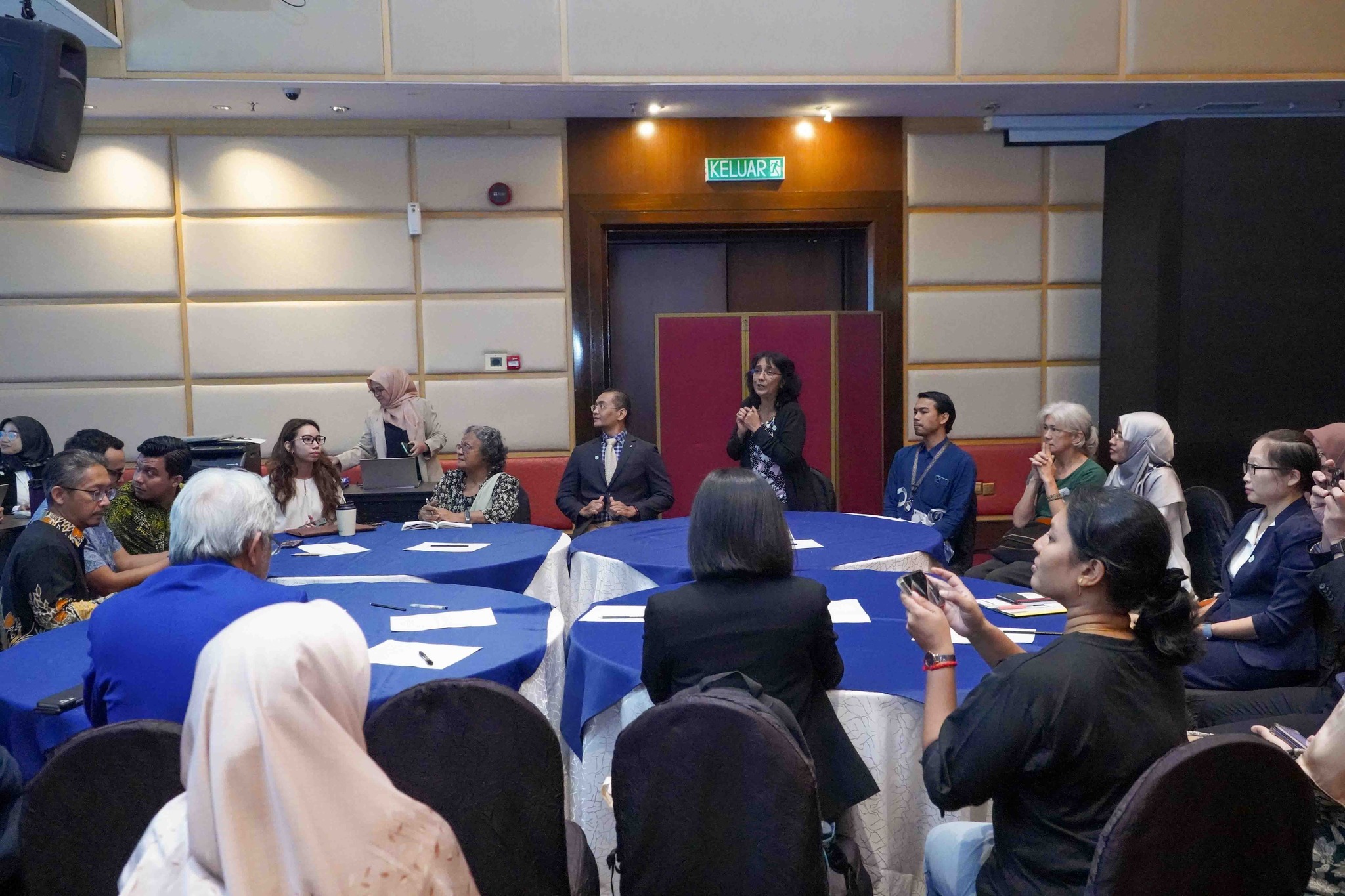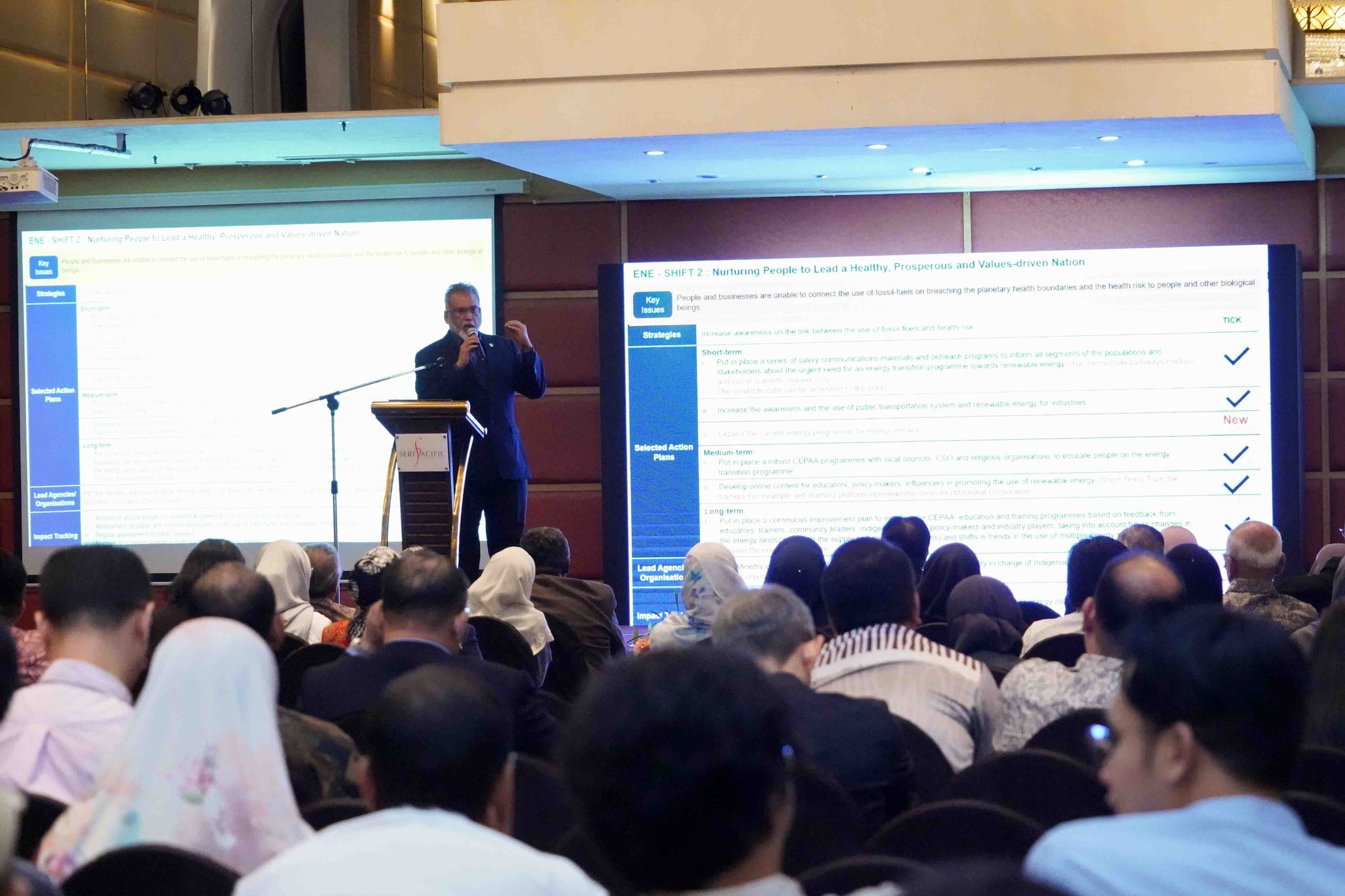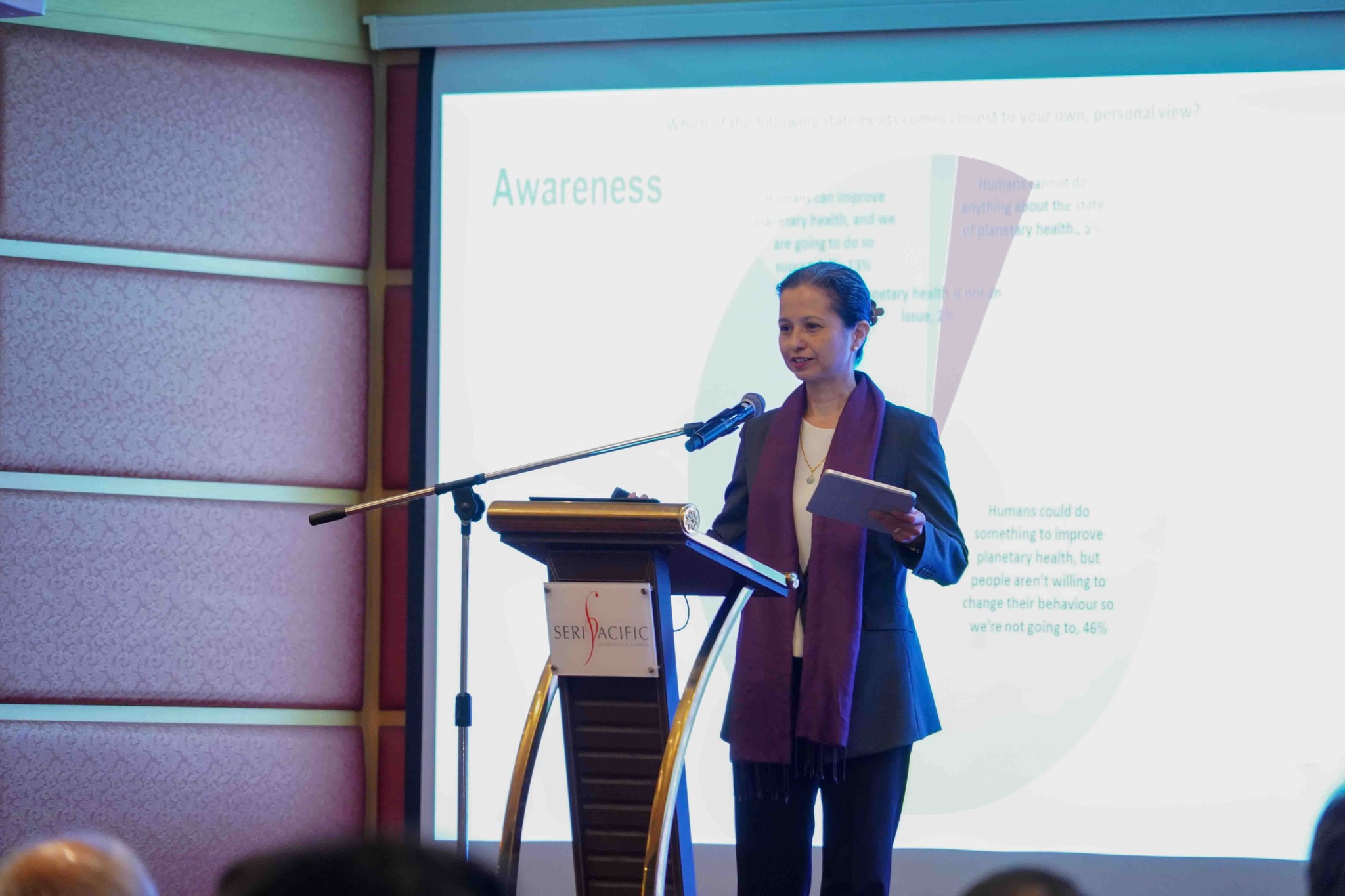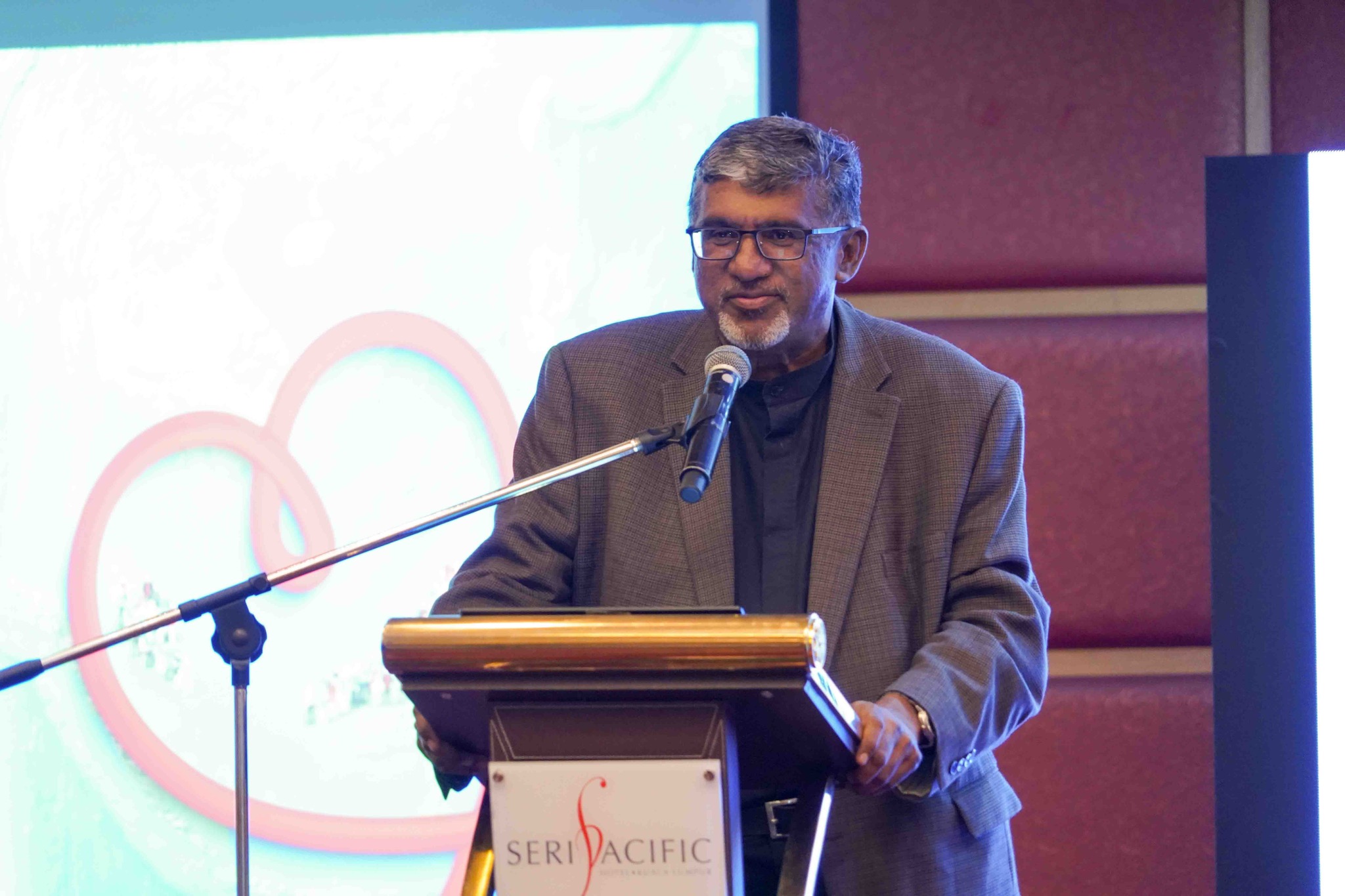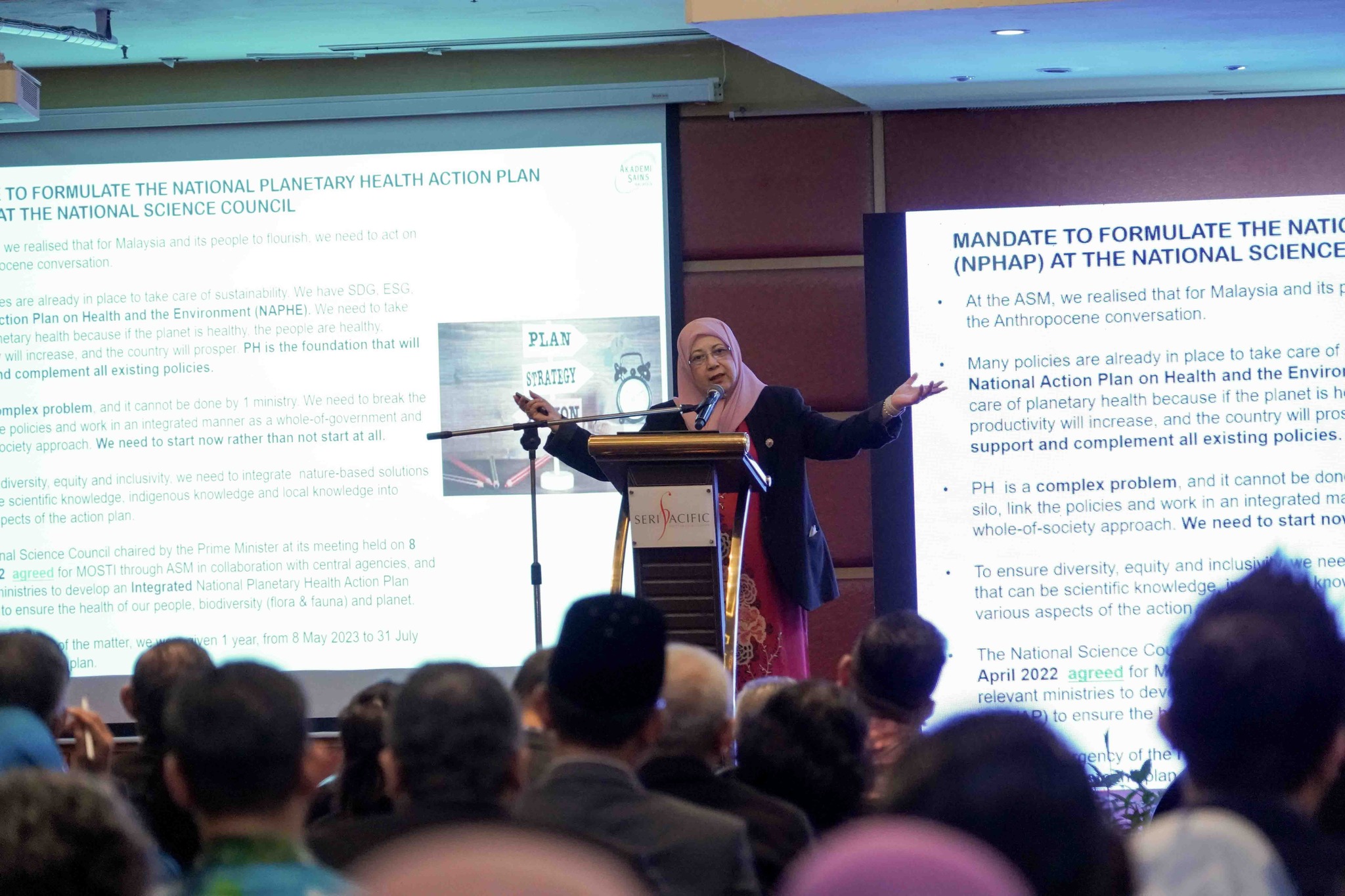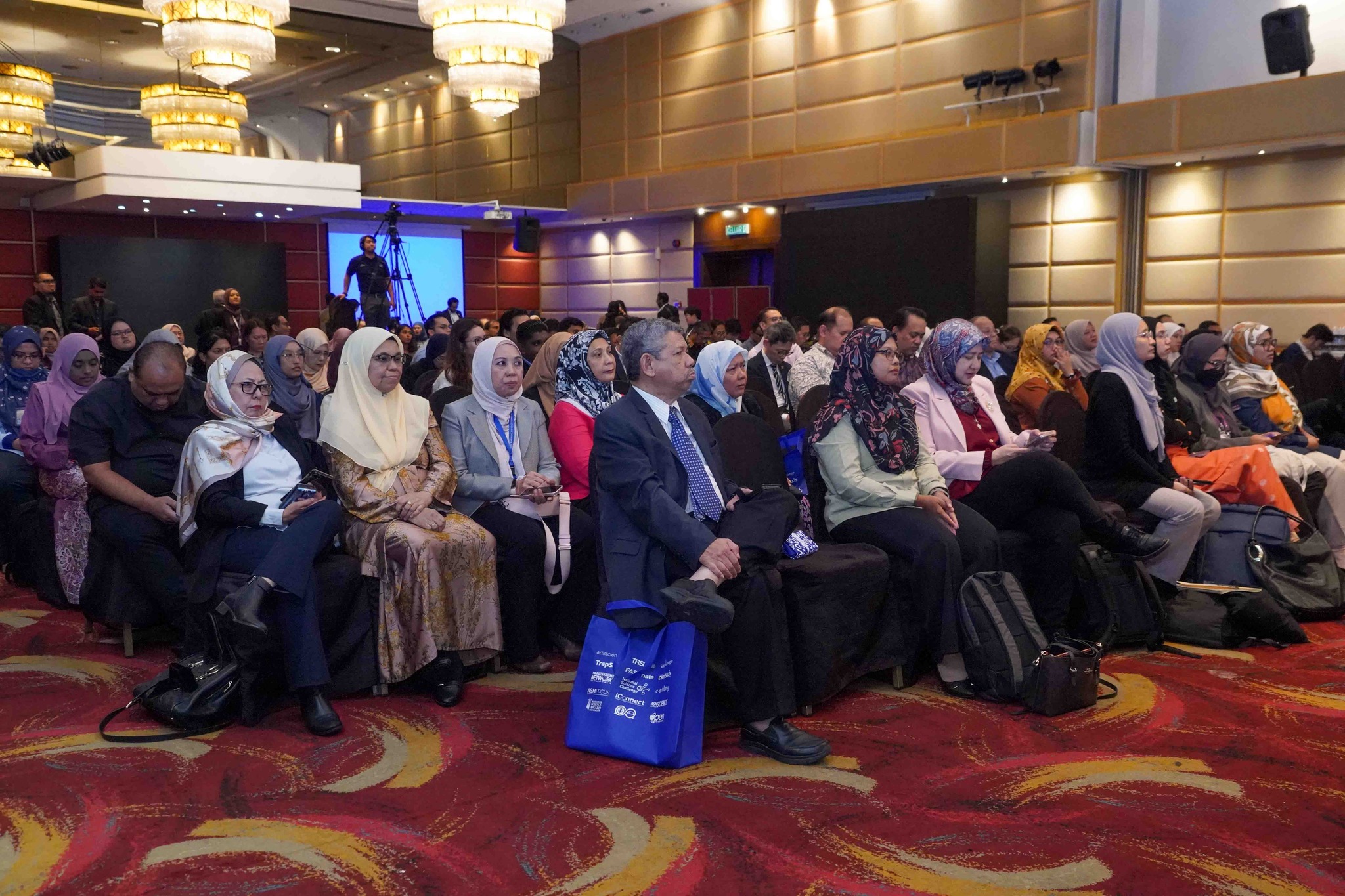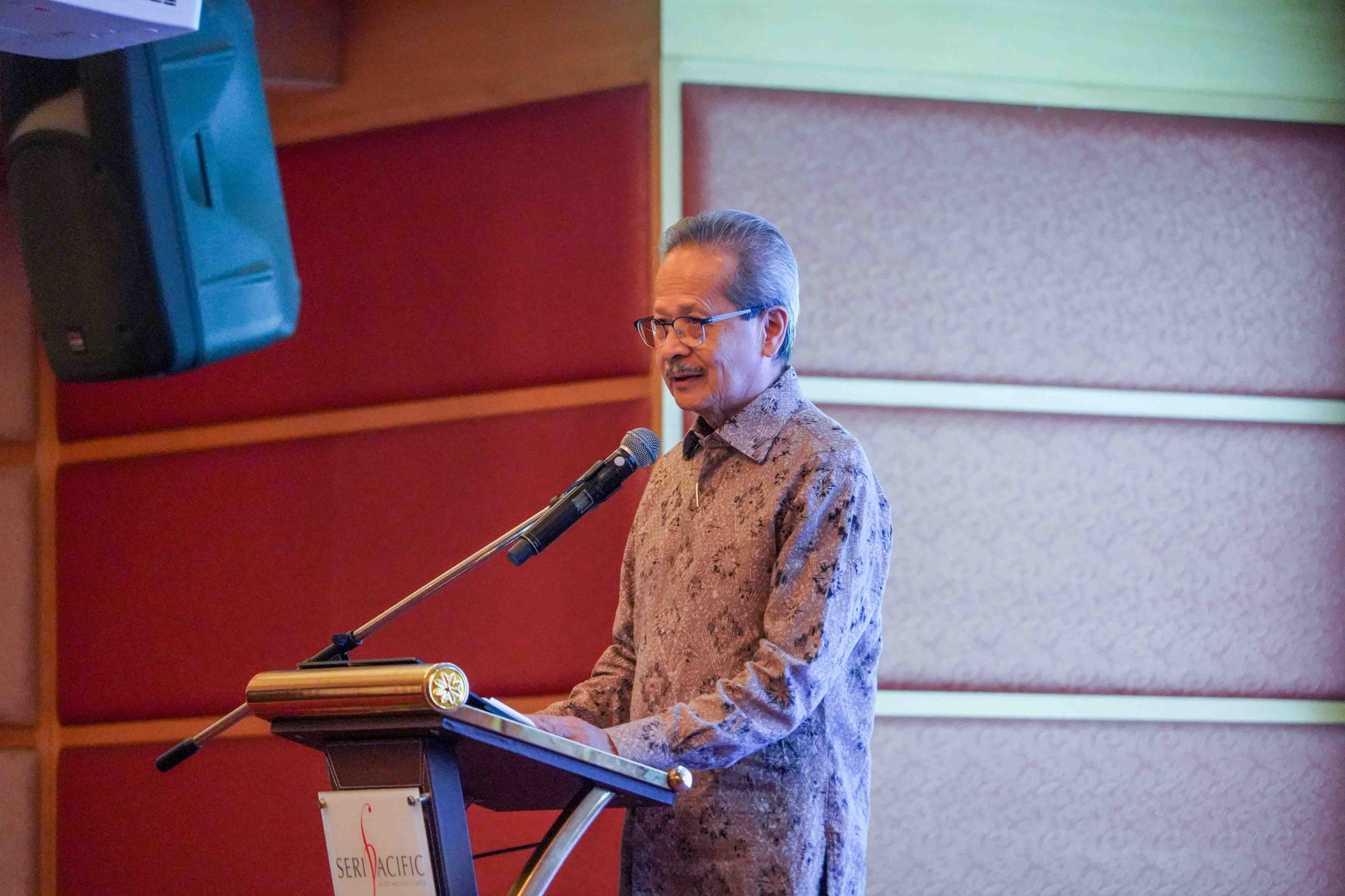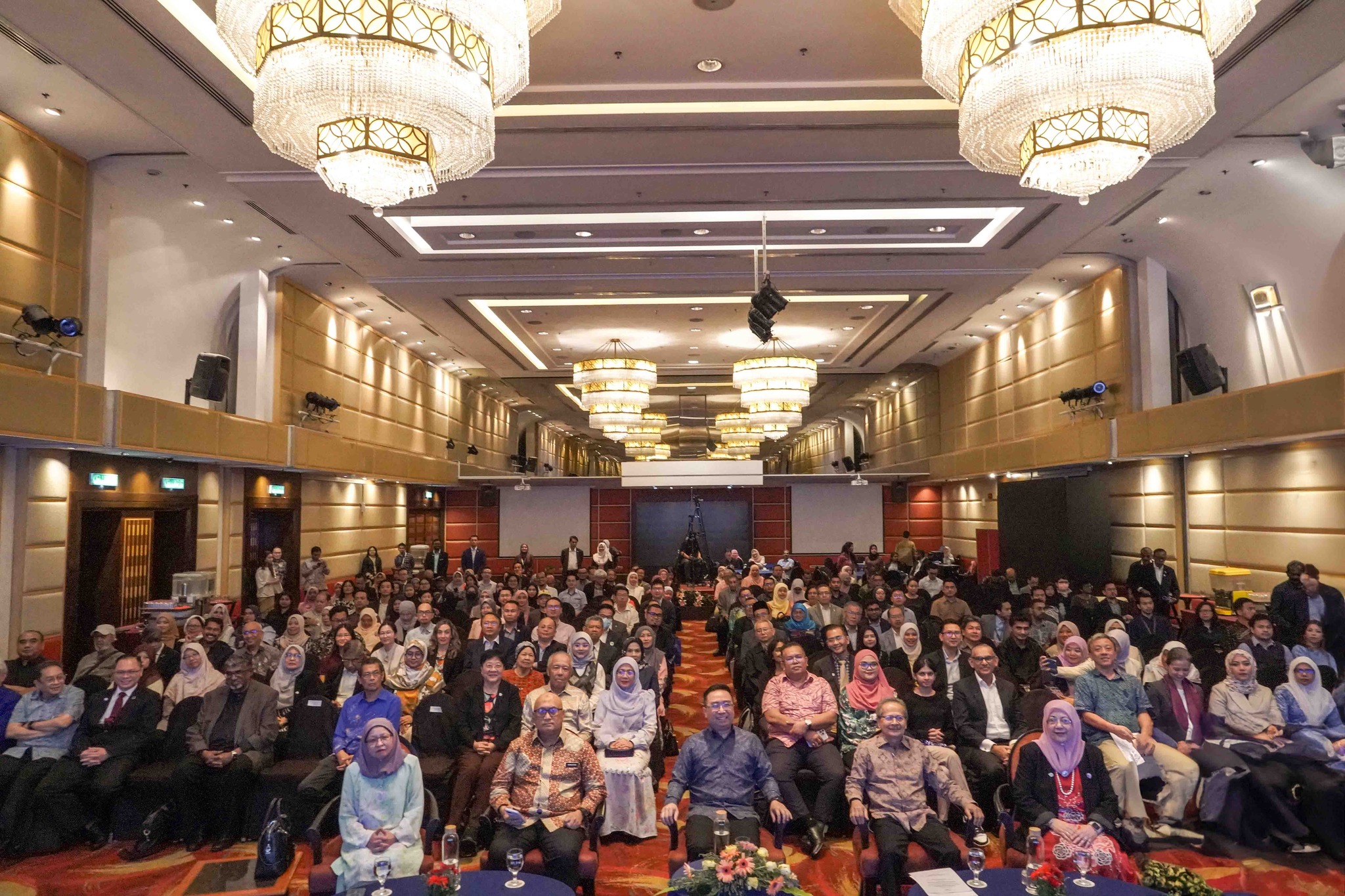
ASM and Japan’s Liberal Democratic Party Discuss Green Technology and Educational Advancements
August 26, 2024
2024 RBS Research Grant Awarded to Lung Cancer Researcher
September 2, 2024ASM is developing the National Planetary Health Action Plan (NPHAP), which aims to integrate planetary health into national policies and roadmaps. As part of this effort, on 25 July 2024, ASM organised the National Dialogue on Planetary Health: Interconnectivity of Humans, Planet, and Prosperity.
This event brought together approximately 250 key figures from government ministries, agencies, industry, academia, and civil society organisations to deliberate and validate proposed action plans. This dialogue aimed to enhance awareness and understanding of NPHAP, secure national-level buy-in, and obtain validation and further input from all stakeholders.
MOSTI Minister YB Tuan Chang Lih Kang emphasised the urgent need to address planetary health challenges in his officiating speech. While commending ASM for the proactive development of NPHAP, he reiterated MOSTI’s commitment to sustainability, supporting green technologies, and fostering collaboration between all sectors to ensure a healthier planet and improved quality of life.
ASM President, Academician Datuk Dr Tengku Mohd Azzman Shariffadeen FASc urged collective action and cooperation to ensure planetary health and human prosperity, inspired by the wisdom of integrating shared values and transcending materialistic perspectives.
Academician Professor Emerita Datuk Dr Asma Ismail FASc, Chairperson of the National Planetary Health Action Plan, came forward to set the scene for all those present.
Firstly, Datuk Dr Asma explained the necessity of the National Planetary Health Action Plan (NPHAP). NPHAP is essential despite existing frameworks like Environment, Social and Governance (ESG) and Sustainable Development Goals (SDG) because SDG implementation has been fragmented and insufficient, with many targets stalled or reversed. Also, NPHAP emphasises the interconnectedness of environmental, social, and economic factors, highlighting the need for holistic solutions beyond individual issues. Unfortunately, global crises, including the pandemic and climate change, have derailed SDG progress, and sustainability requires reshaping societies to be more inclusive and resilient. NPHAP addresses this broader perspective to ensure that sustainable development is not solely about economics but fostering well-being and environmental balance for long-term survival.
According to Datuk Dr Asma, humans and the environment are deeply intertwined, and NPHAP focuses on living well without damaging the planet. In the Anthropocene era, unprecedented environmental degradation affects our health. Addressing the root causes, such as social and environmental determinants, is crucial for lasting health solutions, rather than merely treating the symptoms of a damaged ecosystem.
Then, Datuk Dr Asma explained about one of the largest threat to environmental health: single-use plastic usage. Malaysia is one of the countries with the highest ratio of mismanaged plastic waste going into the ocean, ranking third after India and the Philippines. When plastics break down, they form microplastics, which are a threat to human health. Microplastics are tiny plastic particles, less than 5mm in size, that pollute the environment and can harm wildlife and human health. Nowadays, microplastics can be found in a variety of human tissues and organs, including lungs, colon, liver, placenta, breast milk, vein, and testis. Since it can remain in the body for a long time, microplastics are a cause for health concern.
Datuk Dr Asma went on to elaborate on NPHAP’s value proposition. NPHAP offers a solutions-based, mission-oriented approach that integrates human and environmental health through transdisciplinary collaboration, ethics, and community empowerment. NPHAP complements existing policies like the National Environmental Health Action Plan (NEHAP), National Energy Transition Roadmap (NETR) and the National Agrofood Policy 2.0 (DAN 2.0) while promoting planet-friendly business practices and societal behaviour change. NPHAP also includes an impact tracking framework and genomic database to monitor outcomes and ensure sustainable progress.
NPHAP is STI-driven because science, technology, and innovation provide the foundation for data monitoring, technological advancements, interdisciplinary research, and policy development. STI fosters both local and global collaboration, playing a critical role in addressing the complex challenges of climate change, environmental degradation, and human health, making it essential for a comprehensive planetary health approach.
Following the above, Datuk Dr Asma described the overall framework of the NPHAP, featuring five shifts and six pillars, all operating on the principle of “humanity-centric, STI-enabled, nature-based, and values-internalised”.
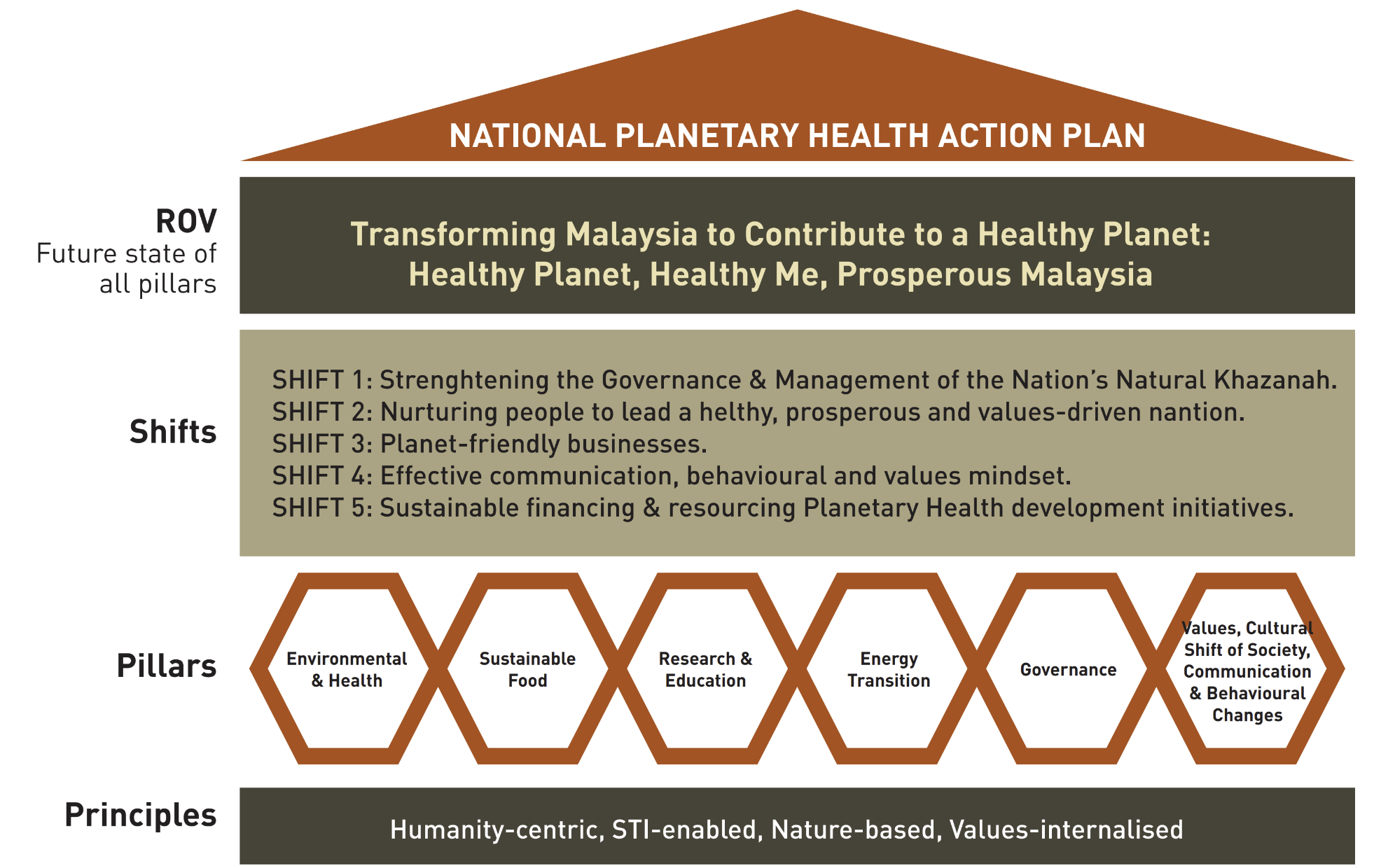
ASM would like to convey our highest appreciation to all stakeholders who participated and contributed to yesterday’s event. Hopefully, this dialogue will be the catalyst for future cross-sector collaboration, positioning Malaysia as a leader in the global pursuit of planetary health and ultimately ensuring a sustainable future for all.

